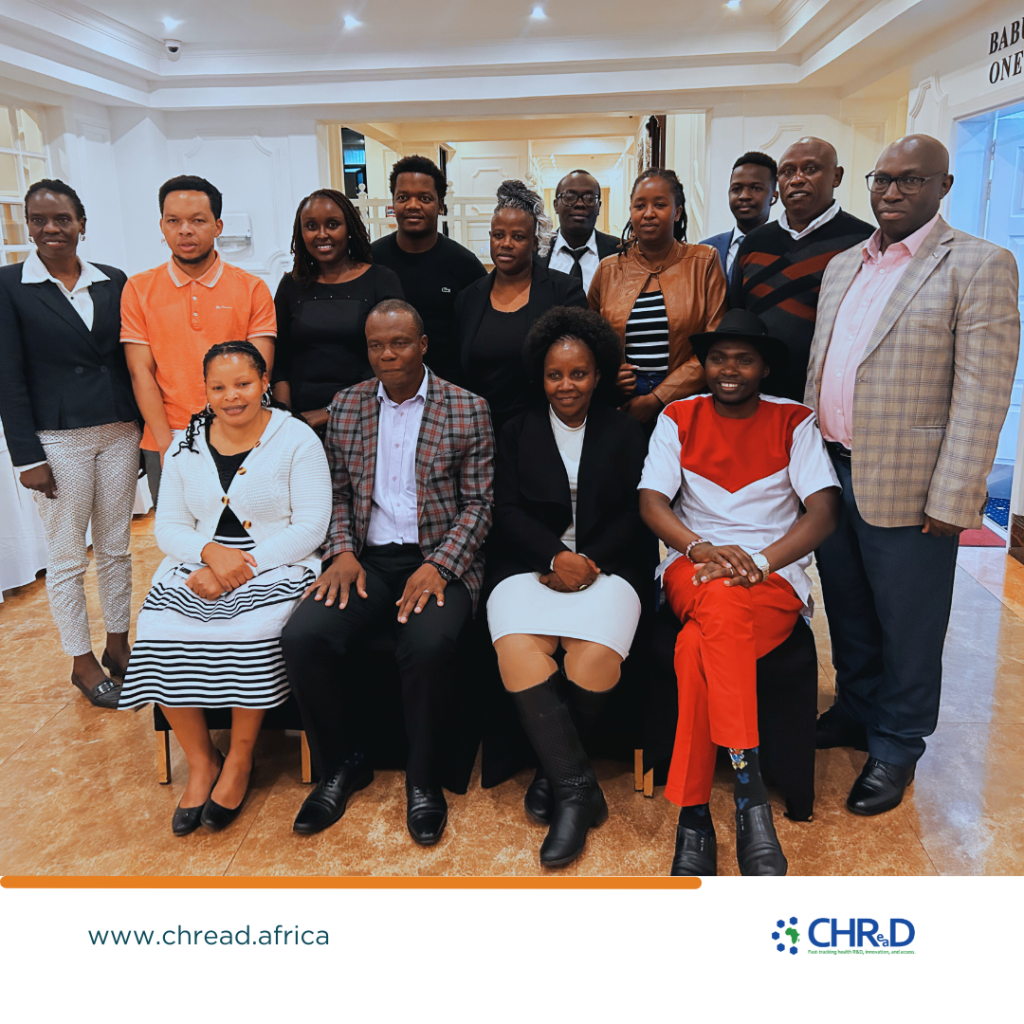Why Africa’s Health Innovation Agenda Needs Its Parliamentarians

Last week in Nairobi, a quiet but powerful conversation took place, one that could influence the direction of health innovation across the continent. Organized by the Global TB Caucus, the informal meeting brought together CHReaD (the Coalition for Health Research and Development) and Hon. Dr. Makombe, Chair of the Health Committee in Zimbabwe’s Parliament and Chair of the Zimbabwe TB Caucus. At the heart of the dialogue was a shared recognition: Africa must urgently shift from being a consumer of global health solutions to becoming a producer of its own.
Engaging Members of Parliament is not symbolic; it is strategic. MPs are gatekeepers of national budgets, shapers of policy, and amplifiers of political will. When it comes to health research and development (R&D), their support can unlock long-term domestic investments, enact enabling legislation, and champion the integration of innovation into national health systems. For too long, R&D has remained on the periphery of parliamentary discourse. That must change.
Tuberculosis (TB), a centuries-old disease that still kills over 1.3 million people annually, was a central focus of the discussion. Africa carries a disproportionate share of the TB burden. Yet, despite this, research into new tools—diagnostics, medicines, and vaccines—remains underfunded and heavily dependent on foreign donors. TB also serves as a powerful entry point into broader discussions about antimicrobial resistance (AMR). Drug-resistant TB is one of the clearest and most devastating expressions of AMR. The two are not just related; they are part of the same crisis: the accelerating failure of our existing medicines and the shrinking pipeline of new ones.
The challenge is compounded by the decline in global health funding. As donor priorities shift and financing shrinks, many research projects are left stranded, cut short just before breakthroughs can be made. This exposes a critical truth: diseases like TB and the growing mental health burden in Africa are not “neglected” because they are obscure or rare. They are neglected because we have neglected to fund the research and development ecosystems needed to address them. If we want different outcomes, we need a different kind of investment, one led by African governments and parliaments, grounded in the realities of the continent.
During the meeting, CHReaD laid out a clear case for why African countries must prioritize domestic R&D financing. Currently, more than 90% of the medicines and 99% of the vaccines used on the continent are imported. This is not just a vulnerability; it is a strategic failure. We cannot talk about sovereignty or health security while remaining almost entirely dependent on external suppliers for our most basic medical needs.
One of the proposed solutions was to adopt innovative financing mechanisms, taking inspiration from models like Zimbabwe’s HIV response, which successfully leveraged domestic revenue to fund lifesaving interventions. Importantly, the conversation also turned to Africa’s mineral wealth. By placing a modest levy on extractive industries such as mining, oil, and gas, countries could ring-fence sustainable funding streams for health R&D. In other words, we must make our natural wealth work for our people’s health.
Another critical area discussed was traditional and alternative medicine. Across Africa, herbal remedies are already in widespread use, not only in treating infectious diseases but also in managing mental health conditions and enhancing nutrition. These remedies, often passed down through generations, are undervalued yet represent a powerful opportunity for scientific exploration and innovation. In the face of AMR and a global shortage of new antibiotics, traditional knowledge systems may hold untapped potential for novel therapies. But this requires research, regulation, and investment, not just folklore.
Digital innovation was also identified as a growth area. Africa must accelerate the adoption of artificial intelligence (AI) for health, support the development of regulatory sandboxes to test and scale new technologies, and remove barriers to cross-border collaboration. These steps are crucial if we are to harness the momentum of a young, tech-savvy generation eager to contribute to health solutions.
Finally, governments must act not only as funders but also as anchor buyers, committing to purchasing locally developed innovations. This can help stimulate demand, de-risk private investment, and build viable markets for African innovators. Aligning national policies with continental frameworks such as the African Continental Free Trade Area (AfCFTA), the African Medicines Agency (AMA), STISA 2024, and Agenda 2063 will ensure coherence, scale, and long-term impact.
The meeting in Nairobi was informal, but the stakes could not be higher. If parliamentarians embrace their role as champions of health research and innovation, they can help build a future where Africa no longer waits for solutions; it creates them.
Because in the end, it is not just about fighting TB, AMR, or mental illness. It is about shifting power. It is about building systems that reflect the strengths, knowledge, and aspirations of the continent. It is about reclaiming our right to health through research, innovation, and political courage.
